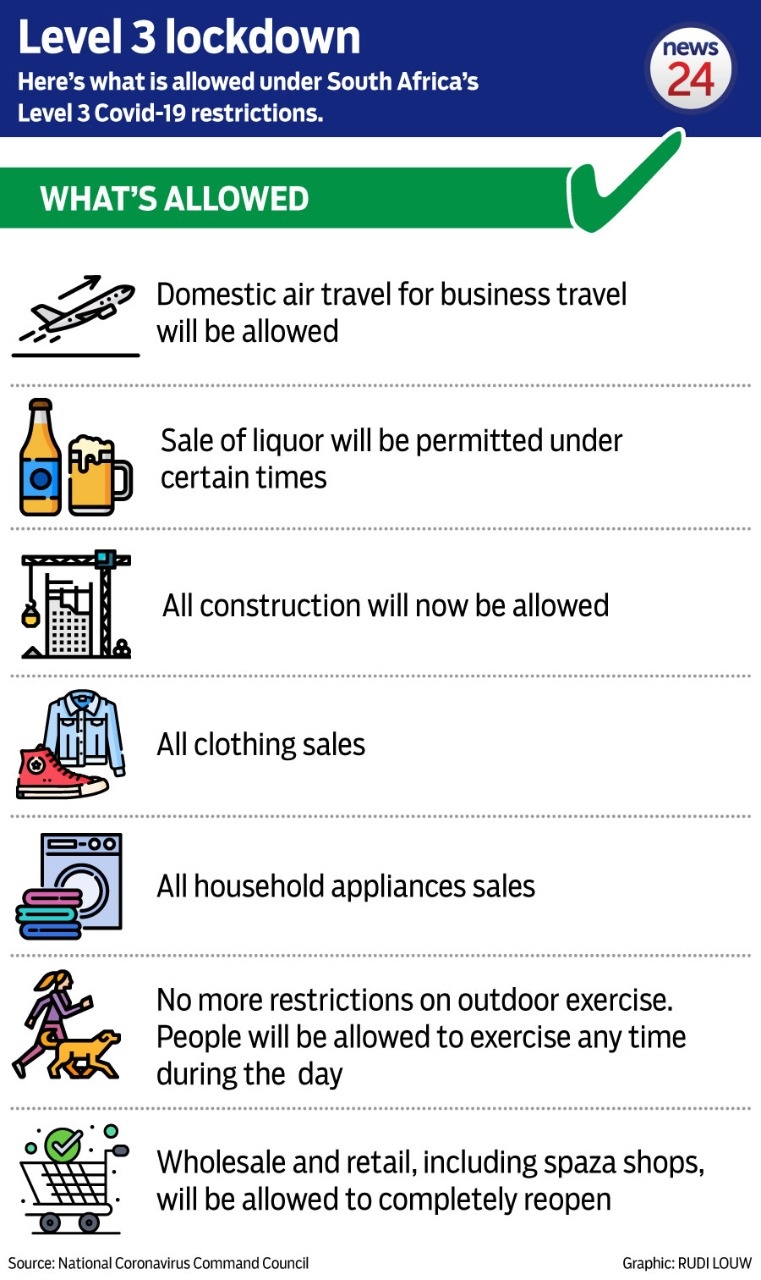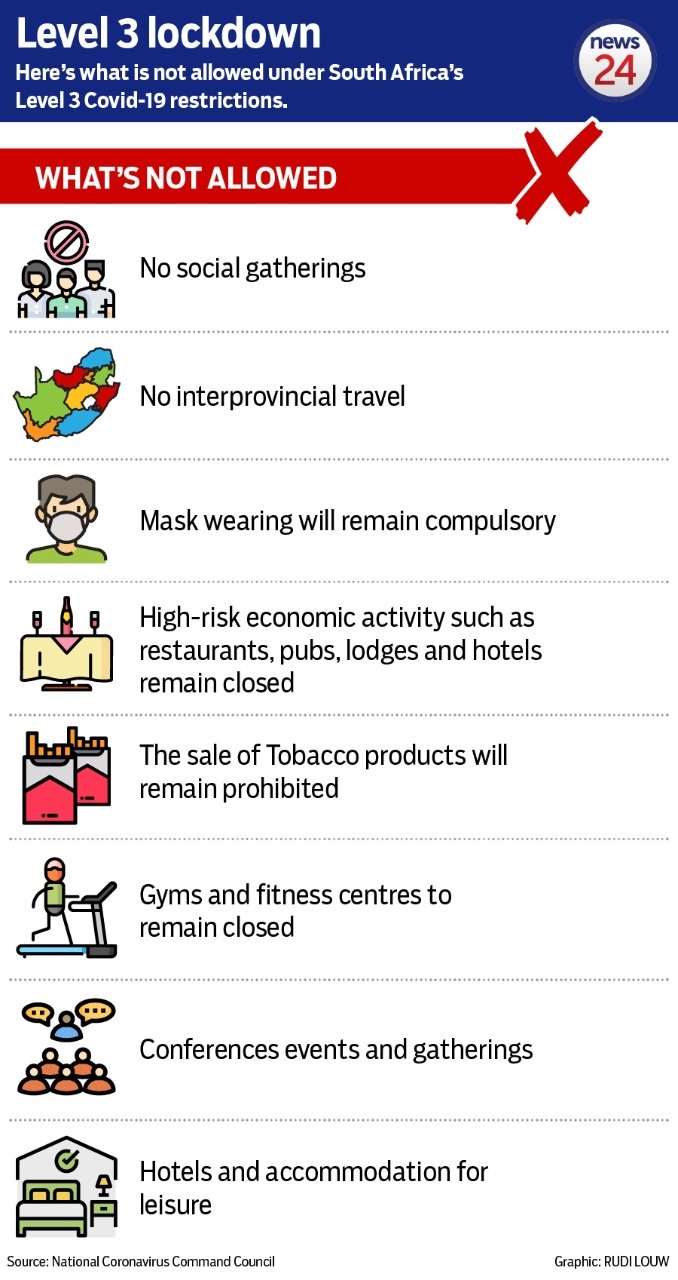EXPLAINER | Lockdown Level 3: What you will be allowed to do and what you won't
by James de VilliersPresident Cyril Ramaphosa on Sunday evening announced that the whole of South Africa will enter Level 3 of the lockdown from 1 June, which will ease a number of the regulations, including the sale of liquor.
In a televised address, Ramaphosa said the nationwide lockdown had been effective to slow the spread of Covid-19, but it could not be sustained indefinitely.
READ | These businesses must remain shut during Level 3
He said on the basis of the country's risk-adjusted approach, guided by, among others, the rate of infection and the capacity of health facilities, Cabinet decided to move the entire country from lockdown Level 4 to Level 3.
Ramaphosa said Level 3 will see the national curfew removed.
He said details of the new regulations will be made available when discussions have been concluded.
Ramaphosa, however, said that areas in the country where there is a high number of infections, named coronavirus hotspots, may see more stringent movement restrictions compared to other parts of the country.
Here's everything you will be allowed to do, and not allowed to do, under lockdown Level 3:

You will be allowed to exercise any time of the day
People will be able to exercise at any time during the day, provided this is not done in groups, Ramaphosa said.
You will be allowed to buy alcohol
People will be allowed to buy alcohol for home consumption, under strict conditions, on specified days and for limited hours.
You will NOT be allowed to buy cigarettes
Ramaphosa said the sale of tobacco products will remain prohibited under Level 3 due to the health risks associated with smoking.
You will NOT be allowed to see your friends and family
All gatherings will remain prohibited, except for funerals with no more than 50 people, or meetings in the workplace for work purposes, Ramaphosa said. People will be required to stay at home, especially those over 60 and people with underlying conditions.

You will NOT be allowed to go to restaurants or other public gatherings
Ramaphosa said all public places where cultural, sporting, entertainment, recreational, exhibitional, organisational or similar activities take place, will remain closed.
He said a discussion is under way with the interfaith religious community to find a workable solution for the opening of faith institutions.
Restaurants, bars and taverns, except for the delivery or collection of food, will remain closed.
You will NOT be allowed to have your hair cut or nails done
Ramaphosa said to ensure that the country maintains physical distancing, certain high-risk economic activities will remain prohibited, and it includes personal care services like hairdressing and beauty services.
You may be allowed to fly for business travel only
Accommodation and domestic air travel will return for business travel only, and will be phased in on dates that will be announced, Ramaphosa said.
The country's national borders will, however, remain closed for international travel, except for the transport of goods and repatriation of nationals.
You will be allowed to go to any store
Wholesale and retail trade will be fully opened, including stores, spaza shops and informal traders, Ramaphosa said. He said e-commerce will continue to remain open.
You will still have to wear a mask, and wash your hands
Ramaphosa said simple hygiene practices, such as the regular washing of hands, wearing a face mask, keeping at least a 1.5 metre distance from other people, avoiding touching the face with unwashed hands, and cleaning surfaces regularly were the most effective defence against the coronavirus.
All commuters will, therefore, be required to wear masks and wash their hands before and after they have travelled on any form of public transport.
You may send your children back to school
Ramaphosa said Grade 7s and Grade 12s will return to school on 1 June, but parents will not be forced to send their children back to school if they have safety concerns.
He said strict infection control measures and, where necessary, additional water and sanitation infrastructure are being put in place to enable physical distancing, regular hand washing and learner safety at schools.
You will likely be allowed to return to work
Ramaphosa said most sectors of the economy will return to work under lockdown Level 3, subject to observance of strict health protocols and physical distancing rules.
Ramaphosa said this will mean more public servants will be called back to work, which will be determined by the Department of Public Service and Administration in working with all other departments.
He said, subject to hygienic measures, all manufacturing, mining, construction, financial services, professional and business services, information technology, communications, government services and media services will commence, fully reopening from 1 June.
People will, however, still be encouraged to work from home, especially people over the age of 60 and those with pre-existing conditions.
* This article's graphics have been updated to indicate that all construction will be allowed.